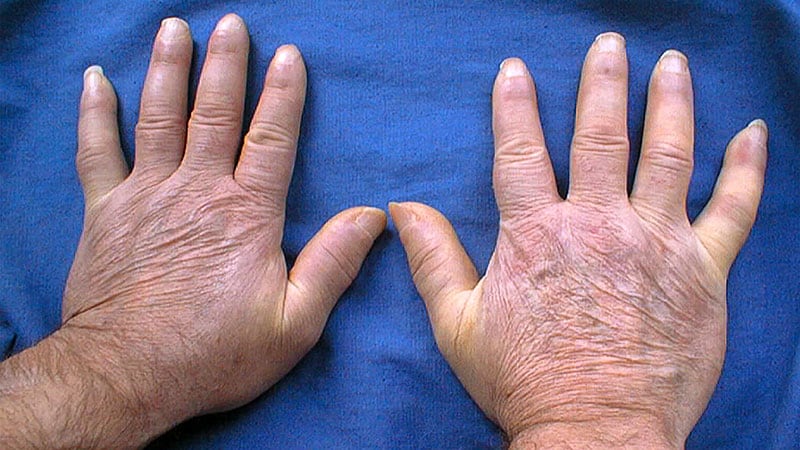Autoantibodies' Role in Predicting Cancer Risk in Scleroderma
Core Concepts
Specific scleroderma autoantibodies can predict cancer risk in patients.
Abstract
TOPLINE:
Five scleroderma immune responses linked to cancer risk.
METHODOLOGY:
Study included patients from Johns Hopkins and University of Pittsburgh.
676 scleroderma patients with cancer history compared to 687 controls.
Serum tested for various scleroderma autoantibodies.
Examined association between autoantibodies and cancer risk.
TAKEAWAYS:
Anti-POLR3 and anti-Ro52 linked to increased cancer risk.
Anti-centromere and anti-U1RNP linked to decreased cancer risk.
Associations held for cancer-associated scleroderma.
Patients with specific combinations of autoantibodies had varied cancer risk.
IN PRACTICE:
Study not yet applicable in practice.
SOURCE:
Study led by Ji Soo Kim, PhD, at John Hopkins University.
DISCLOSURES:
Study supported by various foundations and institutes.
Autoantibodies Could Help Predict Cancer Risk in Scleroderma
Stats
A total of 676 patients with scleroderma and a history of cancer were compared with 687 control patients with scleroderma but without a history of cancer.
Anti-POLR3 and monospecific anti-Ro52 were associated with significantly increased overall cancer risk.
Anti-centromere and anti-U1RNP were associated with a decreased cancer risk.
Patients positive for anti-Ro52 in combination with either anti-U1RNP or anti-Th/To had a decreased risk of cancer.
Quotes
"Anti-POLR3 and monospecific anti-Ro52 were associated with significantly increased overall cancer risk."
"Patients positive for anti-Ro52 in combination with either anti-U1RNP or anti-Th/To had a decreased risk of cancer."
Key Insights Distilled From
by Lucy Hicks at www.medscape.com 08-03-2023
https://www.medscape.com/viewarticle/995127
Deeper Inquiries
How can these findings impact the screening process for cancer in scleroderma patients?
The findings suggesting associations between specific scleroderma autoantibodies and cancer risk could potentially revolutionize the screening process for cancer in scleroderma patients. By identifying high-risk individuals based on the presence of these autoantibodies, healthcare providers can tailor their screening protocols to be more targeted and efficient. This personalized approach could lead to earlier detection of cancer in scleroderma patients, ultimately improving outcomes and survival rates.
What potential challenges or limitations could arise from using autoantibodies to predict cancer risk?
While using autoantibodies to predict cancer risk in scleroderma patients shows promise, there are several challenges and limitations that need to be considered. One major limitation is the specificity and sensitivity of the autoantibodies in predicting cancer risk. False positives or false negatives could lead to unnecessary anxiety or missed opportunities for early intervention. Additionally, the cost and availability of testing for these autoantibodies may pose challenges in implementing widespread screening programs. Furthermore, the long-term follow-up and validation of these associations are crucial to ensure the reliability and accuracy of using autoantibodies for cancer risk prediction.
How might the discovery of these associations influence future research in autoimmune diseases and cancer?
The discovery of associations between specific scleroderma autoantibodies and cancer risk opens up new avenues for research in autoimmune diseases and cancer. This finding highlights the intricate relationship between the immune system and cancer development, shedding light on potential mechanisms underlying the link between autoimmunity and malignancy. Future research could focus on elucidating the biological pathways through which these autoantibodies influence cancer risk, leading to the development of novel therapeutic strategies or preventive measures. Additionally, this discovery underscores the importance of interdisciplinary collaboration between rheumatologists, oncologists, and immunologists in advancing our understanding of the complex interplay between autoimmune diseases and cancer.
0
More on Medical Research
